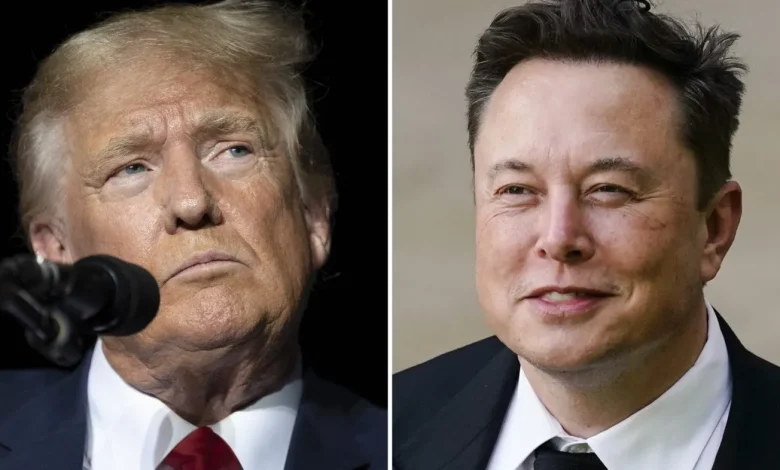Elon Musk Quits Trump-Era Government Position

In a high-profile departure that underscores deepening tensions within the Trump administration, billionaire entrepreneur Elon Musk announced Wednesday he is stepping down from his post in the U.S. government, citing irreconcilable differences over a sweeping new federal spending bill backed by President Donald Trump.
In a post on X, the social media platform he owns, Musk confirmed the conclusion of his role as a Special Government Employee leading the Department of Government Efficiency (DOGE) — a Trump-era initiative launched to streamline bureaucracy and slash federal spending.
“As my scheduled time as a Special Government Employee comes to an end, I would like to thank President Donald Trump for the opportunity to reduce wasteful spending,” Musk wrote. “The DOGE mission will only strengthen over time as it becomes a way of life throughout the government.”
The resignation follows Musk’s increasingly vocal criticism of Trump’s “One Big, Beautiful Bill Act” — a sprawling tax-and-spending package passed by the House last week. Despite being Trump’s largest campaign donor in 2024 and a close confidant, Musk broke ranks over the bill’s fiscal implications.
“Frankly, I was disappointed,” Musk told CBS News. “It increases the budget deficit, not reduces it, and it undermines the work the DOGE team is doing.”
Launched with fanfare and a Silicon Valley mindset, DOGE operated from inside the White House with a skeletal team of technologists. The department had already overseen the dismissal of tens of thousands of federal workers, prompting both praise and protest. But despite its ambitions, DOGE quickly became a political lightning rod.
“DOGE is just becoming the whipping boy for everything,” Musk lamented in a separate interview with The Washington Post, conducted at SpaceX’s Starbase launch facility in Texas.
“Something bad would happen anywhere in government, and we’d get blamed, even if we had nothing to do with it.”
Trump’s marquee bill — pitched by the White House as the cornerstone of his second-term domestic agenda — proposes massive tax breaks alongside dramatic federal cuts. Yet independent analysts, and now Musk, warn the plan could inflate the national debt by as much as $4 trillion over the next decade while stripping vital programs like healthcare.
“A bill can be big, or it can be beautiful. But I don’t know if it can be both,” Musk quipped in the CBS interview, which will air in full Sunday.
The White House was quick to manage the fallout. Deputy Chief of Staff Stephen Miller, posting on X, emphasized that the “Big Beautiful Bill” is not a formal budget resolution. He added that any cost-cutting envisioned under DOGE would require separate legislative action, per Senate rules.
Nevertheless, Musk’s departure signals a rare and very public rift with the president he helped re-elect. It also serves as a cautionary tale about the limits of entrepreneurial disruption in a city governed by red tape and institutional inertia.
“The federal bureaucracy situation is much worse than I realized,” Musk admitted. “It’s an uphill battle trying to improve things in D.C., to say the least.”
Behind closed doors, administration insiders have said Musk’s confrontational leadership style and lack of political experience hindered DOGE’s broader success. While the agency garnered headlines for its sweeping cuts and symbolic closures, critics say it delivered more theater than lasting reform.
Meanwhile, Musk’s own empire hasn’t gone untouched by the political blowback. As tensions mounted over government layoffs, Tesla dealerships became the target of protest — and, in some instances, arson.
“People were burning Teslas,” Musk said, visibly baffled. “Why would you do that? That’s really uncool.”
SpaceX, too, has faced recent turbulence. Just this week, a Starship prototype exploded over the Indian Ocean, marking another high-profile setback in Musk’s long-term vision to colonize Mars.
Adding to the drama, Musk last week signaled an end to his massive political spending, after reportedly contributing over $250 million to Trump’s re-election campaign — the single largest donation by any individual.
His exit from Washington, then, appears to be both ideological and personal: a billionaire technocrat disillusioned by the grinding machinery of governance he once vowed to overhaul.





